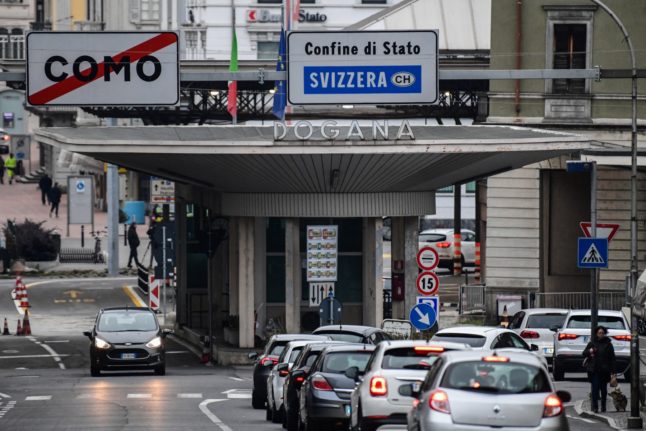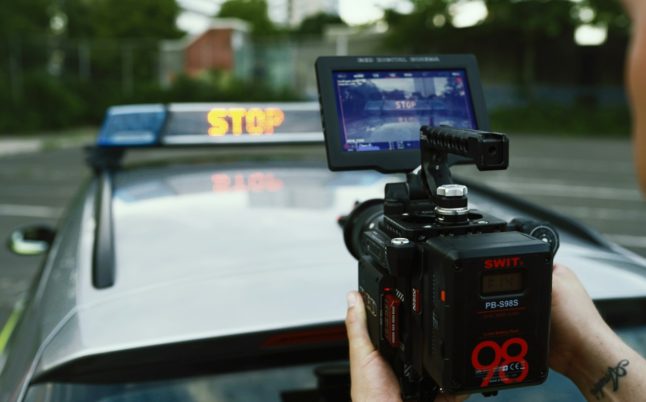Self-adhesive stickers have been in use for decades, but in 2023, the Federal Office of Customs and Border Security (BAZG) introduced electronic versions as well.
While the paper vignettes affixed to a car’s windshield are easily visible, the electronic version, used by 2.5 million motorists, is not.
This means that out of 10.5 million vehicles that drive on Swiss motorways each years, a fifth don’t have an easily noticeable vignette.
READ ALSO : What you should know about Switzerland’s new electronic motorway sticker?
So how do the authorities responsible for checking the stickers deal with this situation?
According to BAZG’s spokesperson Nadia Passalacqua, “the control of the electronic tag takes place through random checks of the license plate. At borders, they are carried out by BAZG collaborators, while within the country it is the responsibility of the police.”
“During the check, the license plate of the vehicle in question is compared with the database of registrations using technical aids or an app,” she added.
What happens if a random check of your vehicle reveals you don’t have either version of the sticker?
Each motor vehicle traveling on Swiss motorways must have a vignette valid for the current year.
This rule includes automobiles, motorbikes, trailers, caravans, delivery vans, and campers that weigh up to 3.5 tonnes.
(Lorries and buses weighing over 3.5 tonnes don’t need a vignette. They are subject to a special heavy vehicle charge instead.)
This obligation also applies to tourists merely transiting through Switzerland.
If, during a random check, your vehicle is found lacking a valid vignette, you will be fined 200 francs (five times the cost of the vignette — 40 francs).
All motorists are expected to comply with this rule because the cumulative price of the sticker is used to maintain the road infrastructure, which in the past was financed by tolls.
Today, Switzerland still has some paid roads which are not covered by the vignette, though there are far fewer of them than elsewhere in Europe.
Where can vignettes be purchased ?
The paper ones are available at border crossings, post offices, and petrol stations.
The digital sticker, which is linked to the vehicle’s registration number, can be purchased at any time on the BAZG website.
You can do so by selecting a vehicle category, country where it was registered, and number plate. No personal data like your name or address is needed.
You can pay for e-vignette online or by a credit card.You will then receive confirmation, which is your proof of purchase.
Be aware, however, that BAZG is advising motorists to purchase the e-vignette only from its site.
That’s because some foreign sites, including one based near Amsterdam, is also selling e-stickers, promoting itself as “the website for buying your official Swiss vignette.”
This online shop is not fake — it buys legitimate e-vignettes from BAZG and then re-sells them for a higher price.
In Switzerland, both paper and digital versions cost 40 francs, while the Dutch provider sells them for 50 euros — 48 francs at the current exchange rate.
READ ALSO : Switzerland warns drivers not to buy motorway sticker on foreign websites
It is important to get this right because, according to Passalacqua, eventually the physical sricker will be eliminated in favour of its e-version.
That moment will come when the paper vignette will generate less than 10 percent of overall revenue.



 Please whitelist us to continue reading.
Please whitelist us to continue reading.
Member comments